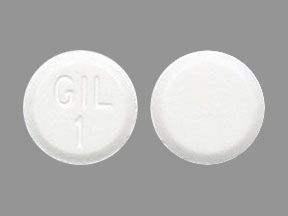Azilect Disease Interactions
There are 5 disease interactions with Azilect (rasagiline).
Rasagiline (applies to Azilect) hepatic impairment
Major Potential Hazard, Moderate plausibility. Applicable conditions: Liver Disease
Rasagiline should not be used in patients with moderate to severe hepatic impairment. Patients with mild hepatic impairment should not exceed a dose of 0.5 mg daily.
Dopamine agonists (applies to Azilect) hypotension
Moderate Potential Hazard, Moderate plausibility.
Dopamine agonists may impair the systemic regulation of blood pressure, with resultant orthostatic hypotension at any time, but especially during dose escalation. Additionally, patients with Parkinson's disease may have an impaired capacity to respond to an orthostatic challenge. For these reasons, patients with Parkinson's disease (or restless legs syndrome) who are being treated with dopaminergic agonists typically require careful monitoring for signs/symptoms of orthostatic hypotension, especially during dose escalation, and should be advised of this risk.
Dopaminergic antiparkinsonian agents (applies to Azilect) psychosis
Moderate Potential Hazard, Moderate plausibility.
Ordinarily, patients with major psychotic disorder should not be treated with dopaminergic antiparkinsonian agents, because of the risk of exacerbating psychosis. Hallucinations and psychotic-like behavior have been reported with dopaminergic medications. In addition, certain medications used to treat psychosis may exacerbate the symptoms of Parkinson's disease and may decrease the effectiveness of these drugs. The use of bromocriptine in patients with severe psychotic disorders is not recommended.
Rasagiline (applies to Azilect) hypertension
Moderate Potential Hazard, Moderate plausibility.
Exacerbation of hypertension may occur during treatment with rasagiline. Dosage adjustment may be necessary if the elevation is sustained. Patients should be monitored for new onset hypertension or hypertension that is not well controlled after starting treatment.
Rasagiline (applies to Azilect) renal impairment
Moderate Potential Hazard, Moderate plausibility. Applicable conditions: Renal Dysfunction
Dose adjustment of rasagiline is not required for patients with mild or moderate renal impairment. However, rasagiline has not been studied in patients with severe renal impairment. Caution is advised if used.
Switch to professional interaction data
Azilect drug interactions
There are 523 drug interactions with Azilect (rasagiline).
Azilect alcohol/food interactions
There are 5 alcohol/food interactions with Azilect (rasagiline).
More about Azilect (rasagiline)
- Azilect consumer information
- Check interactions
- Compare alternatives
- Pricing & coupons
- Reviews (10)
- Drug images
- Side effects
- Dosage information
- During pregnancy
- Generic availability
- FDA approval history
- Drug class: dopaminergic antiparkinsonism agents
- Breastfeeding
- En español
Related treatment guides
Drug Interaction Classification
| Highly clinically significant. Avoid combinations; the risk of the interaction outweighs the benefit. | |
| Moderately clinically significant. Usually avoid combinations; use it only under special circumstances. | |
| Minimally clinically significant. Minimize risk; assess risk and consider an alternative drug, take steps to circumvent the interaction risk and/or institute a monitoring plan. | |
| No interaction information available. |
See also:
Further information
Always consult your healthcare provider to ensure the information displayed on this page applies to your personal circumstances.


